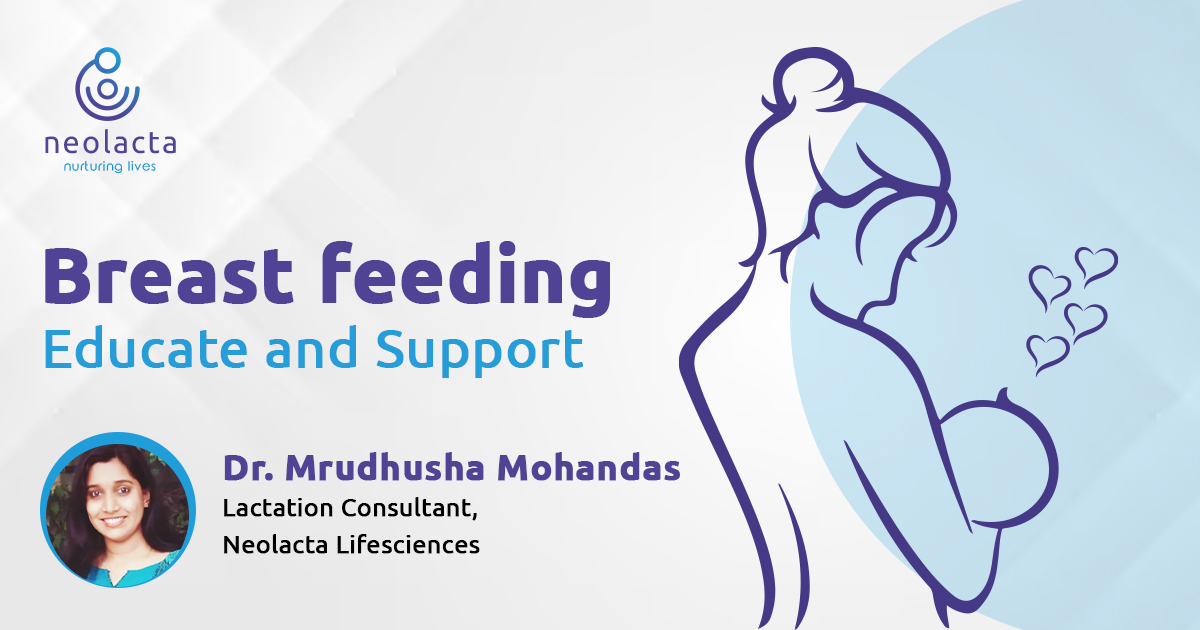Breastfeeding – Educate and Support
World breast feeding week is celebrated from 1st to 7th August every year since 1992. The goal of the week is to highlight the importance of breastmilk and encourage and promote breastfeeding to improve the health of babies and mothers all around the world. The theme for 2022 was ‘Step up for Breastfeeding – Educate and support’. It is all about how we as family members, friends, doctors, nurses, health care professionals and society can step up to support the mother in this journey.
It is a preconceived notion that childbirth and breastfeeding are the best experiences for a mother, but motherhood comes with its own share of challenges through the journey.
Breastfeeding education is essential not only for the mother but for her entire family. Breastfeeding journey will be smoother when both parents take it as a team work and share the load, helping the mother to transition into this new phase of her life and building trust and confidence as parents.
Antenatal sessions and breastfeeding counselling sessions conducted by the hospitals can help to sensitize mothers about breastfeeding and to prepare for the probable breastfeeding challenges.
It is also important to educate the family members about their role in making breastfeeding journey easier. It could be as simple as supporting the mother in baby care or helping with household chores. These small steps will also make the mother feel loved and taken care of.
Many mothers in the initial phase after childbirth may experience baby blues. These may include mood swings, crying spells, anxiety or difficulty sleeping. This is the phase where both the mother and baby are settling in. It is quite natural for a mother to experience mixed emotions. Having support from partner and family can help her to overcome this easily. And most importantly emotional support from the partner can work wonders for the mental and emotional health of the mother.
In addition to support from family and friends along with guidance from medical fraternity, society at large should also be sensitized to support a mother during this phase. Be it policies at work or mother friendly legislations implemented by the government or building feeding rooms at public places, might seem like small steps but these would help in normalizing breastfeeding and encouraging mothers to breastfeed.
Breastfeeding babies is a joint responsibility and each mother baby dyad should be supported and encouraged to ensure we build a healthier future generation.


